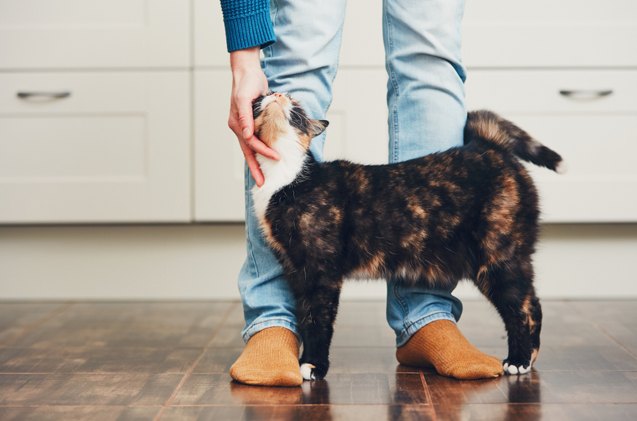Are Cats Social Creatures?

Too many people still think that cats aren’t social creatures. While every kitty is an individual and you might encounter those that prefer to be alone, without any other felines in the household, the truth is that cats need companionship.
Having a better understanding of your cat’s social needs will help you make better decisions for him, especially if he is displaying behavioral issues. So what do feline behavior experts have to say about your pet’s social preferences?
Mislabeled as Solitary
“Independent” and “solitary” are a couple of labels that are often attributed to cats. And, sure, a mother cat can raise her kittens all by herself, or a lone feline can hunt down prey without needing help from other cats to get the job done. But, according to Pam Johnson-Bennett, cats do have a social structure and social needs.
The thing is that a cat’s social preferences are different from a dog’s social needs, so a lot of people who tend to compare cats to dogs will end up making the mistake of thinking that cats are always territorial and always prefer being alone. And, yes, introducing a new cat to your resident cat can be a bit complicated because they have to go through the process of negotiating their territory first.
Recognize Your Cat’s Signs of Affection and Need for Attention
If you thought that cats don’t really have a need for attention from their human family, think again. Generally, kitties could stay home alone for a few hours, but it’s important to remember that your pets depend on you. Kitties aren’t low-maintenance animals that can be ignored and left alone all the time. Instead, they require companionship, and they can suffer from separation anxiety.
Cats have their own unique ways of showing affection, and their methods can be pretty subtle. Some kitties will gladly snuggle up with you and rest in your lap, while others might only want to sit in the same room as you just to be close without getting too close. Other signs that your cat really does dig you include: softening his gaze, exposing his tummy, giving you love bites or grooming you, and head bunting or cheek rubbing. Getting to know your cat and his preferences, even right down to how he prefers to be petted, will help you learn how to read his body language and fulfill his social needs.
What About Feral Cats?
Your housecat needs your attention, and he may even prefer the companionship that comes from having kitty roommates. But what about feral cats? Do they have a social structure, or do they prefer going about life alone?
When cats have to fend for themselves outside, they are still social, but they do have their limits. Feral cats could be found living in groups that consist mostly of females and their litters. The availability of food could play a role in determining how big a kitty colony will be. Several generations of females who are related could end up living together, raising their kittens together. Feral males, on the other hand, may choose to go off on their own, establishing a territory that might even overlap with another territory, and they might even be found exhibiting friendly behavior towards other kitties in a colony.
Independent, Yet Social
It seems to be that cats can be both independent and social at the same time. They have the ability to enjoy their time alone, but they also desire attention and affection from their owners. And, when properly introduced, or when they are raised together, cats could gladly share their space with each other and coexist happily.

Lisa Selvaggio is a freelance writer and editor, and our resident cats-pert, with certifications in pet nutrition and pet first aid. She enjoys producing content that helps people understand animals better so they can give their pets a safe and happy home.
More by Lisa Selvaggio























